2009 was the year of the re-read for me, and in particular the series re-read. I love diving into a series and living in the same world as the characters for weeks on end. At the start of the year I couldn’t find any new series I wanted to start on, so I went back to some old favourites:
- Roger Zelazny’s Amber series
- Neil Gaiman’s Sandman books
- Lois MacMaster Bujold’s Vorkosigan series
- Julian May’s Pliocene and Galactic Milieu series
I have read the first three series several times before already, and they are always fresh, and always fun. For a change, I read the Vorkosigan books in chronological order (although I started with Shards of Honor, rather than Falling Free), and in rapid succession. The early Miles books (The Warrior’s Apprentice and The Vor Game are still my favourites, and it turns out that Diplomatic Immunity isn’t as bad as I remembered it.
The Julian May books were less of a pleasure. If it weren’t for the “I’ve got this far so might as well keep going” sunk-costs argument, I would (should) have stopped about fifty pages into The Golden Torc. I remember waiting eagerly for the publication of Diamond Mask and Magnificat in the mid-90s, but now I just find the characters overly self-absorbed and melodramatic; I don’t think I’ll be re-reading them again.
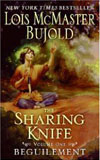

Staying with Lois McMaster Bujold, 2009 saw the publication of the fourth and final book in her Sharing Knife series. I bought the first book, Beguilement when it was released in 2006, but didn’t read it at the time. I knew it was only the first part of a single big story, and having been burned by Peter F. Hamilton’s Pandora’s Star the previous year, I didn’t want to start on the tale, only to have to wait three years to get to its end. But when the fourth part, Horizon was published in February, I grabbed it and started from the beginning.

The Sharing Knife is a fantasy romance — not a combination that normally leaps off the shelves at me. But I trust Bujold to write characters I care about and a story that interests me regardless of my genre prejudices, and that is exactly what she has done here. The world she has created has more of an American frontier feel to it rather than a pseudo-medieval European vibe: prairies and riverside trading towns rather than dark forests and castles. Lakewalkers patrol the land on the lookout for malices, creatures that rise from the earth and feed on the life energy of everything nearby, and are capable of devastating entire towns. The malices are an ancient menace, but thanks to Lakewalker efforts over the centuries, a rare one now. So rare that many farmers don’t even believe in them any more, which causes tension when Lakewalkers come to town and require their aid. Because of the apparent safety, and the particular magical means by which Lakewalkers fight the malices, farmers have grown likely to fear and mistrust them, and call them witches, rather than heed their warnings.

The main characters are Fawn, a young farmer woman who has run away from home, and Dag, a grizzled Lakewalker veteran. They fall in love despite the large cultural gap that separates them. The books follow them as, outcast from their families and communities, they try find a place for themselves in the world, and to somehow reconcile these two parallel but highly interdependent societies.
Oh, and fight evil! The book covers may look all sweet and pastoral, but the plot is driven forward by the ongoing and very real threat of the malices. While I wouldn’t characterize the books as adventure stories, there is no lack of action. Bujold strikes a masterful balance between the clash-of-cultures love story and edge-of-your-seat thrills, and I can highly recommend the whole series.
(Just make sure you read the first two books, Beguilement and Legacy together, because it is really one book split in two — even the covers are two halves of a single piece. Three and four make up “part two”, but they are a looser pairing.)
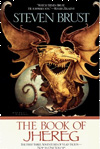
Throughout November and December I also caught up on Steven Brust’s Vlad Taltos series (including an advance copy of Iorich thanks to Patrick at Tor). I know that I had read Jhereg before, and I’m pretty sure that parts of Yendi were familiar; what I can’t figure out is why the hell I would have read the first two books, but not gone on to devour the rest of the series, because it’s awesome. They are (for the most part) hard-boiled fantasy detective novels, not dissimilar in tone to some of my favourite contemporary detective series (Spenser, Elvis Cole, Myron Bolitar, et al.) The “detective” may be a witchcraft-using assassin, and his sidekick a miniature dragon (jhereg) on his shoulder, but the mean streets of the city are still mean, and when tough talk fails, knocking a few heads together often shakes loose the information required.
That only really describes the surface appearance of this series, though; the underlying world is rich and complex, full of Gods, Great Weapons, ancient sorcery, discrimination, social unrest, and peasant revolutions. Another thing that appeals to me about the books is that they are short, in the 200–300 page range. Steven Brust says what he wants to say, and then moves on. I like that. (Unfortunately his writing style in the other Dragaeran books has the opposite effect on me. I haven’t been able to get past the first few pages of The Phoenix Guards.)
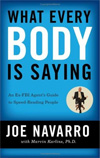
Finally, some non-fiction. I have been interested in non-verbal communication since I picked up a copy of Allan Pease’s Body Language in the mid-eighties. In fact, this is one of the reasons I dislike working remotely. Phone calls strip out all the visual cues I use to pick up on the mood of the office, and to gauge unvoiced concerns in a meeting.
Joe Navarro is a former FBI agent with a background in interrogation and deception detection, and What Every Body Is Saying pays a lot of attention to reading the signals people emit during conversation. Navarro emphasizes that this is not about being able to tell whether someone is lying or telling the truth (although that does make for good TV), but rather about learning whether someone is confident or holding back, relaxed or stressed. When you understand that, you can try to guide the conversation to figure out why they are feeling that way.
Interestingly, this has significant use in usability testing. One of the tenets of usability testing is that you pay attention to what people do, rather than what they say. People are often reluctant to criticize, preferring instead to tell white lies about things they dislike. By studying their posture, gestures, and expressions during a test, and in post-test conversations, you can gain a much better understanding of their emotional state, and where problems lie.
This is definitely one of my top picks of the year. It’s very clearly written, and sprinkled with good illustrations, and not only does it make an excellent introduction to the subject of non-verbal testing, but it also rewards repeated reading and bite-sized dippings-into. Very excellent.


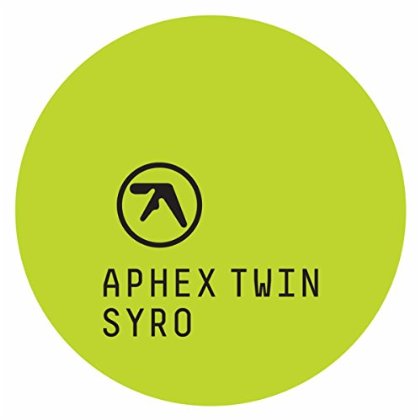








 My book of the year was
My book of the year was 
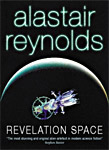


 The biggest online worlds may seem well-developed compared to their predecessors, but they are in still in their infancy with regard to user interaction and freedom of action. Despite being larger than any
The biggest online worlds may seem well-developed compared to their predecessors, but they are in still in their infancy with regard to user interaction and freedom of action. Despite being larger than any